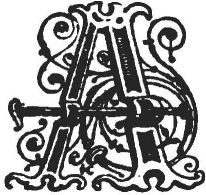
Traditions and Hearthside Stories of West Cornwall, Vol. 2, by William Bottrell, [1873], at sacred-texts.com
A Tinner's Fireside Stories.
The Knockers of Ballowal.
To pause from toil, and trim their evening fire.
Goldsmith.
 |
We wish to correct an error that many persons, not Cornish, entertain with regard to the language of Cornish working people. Their mistake originates, in many instances, from seeing in stories—misnamed Cornish, and for the most part written by strangers to the country—such an uncouth jargon, put into the mouths of West Country folks, which is no more the common dialect of Cornwall than it is of Jericho. Our English will bear comparison with that of any rural district, and, in most cases, be found more correct, though somewhat antiquated. Many of our peculiar words, such as agricultural or mining terms, a few names of plants, &c., are genuine old Cornish.
"I know that strangers," said Uncle Bill, "and grand learned folks like our passen, don't believe in the sperats we cale knackers workan in the bals, and say that the noise, made by these old ghosts of tinners, is caused by water oazan out of a lode and drippen into a pit; as of the water fallan from ever so high, could sound like hammer and boryer, or pick and showl (shovel)
workan away. But, bless us, comrade, what can these strangers that come here—to instruct us, forsooth!—know about such things? Yet how they will talk about what they never heard of before they came among us, and say it es all su-per-sti-tion! Now that's a fine word, my dear, and I mean to use et on all occasions; like An’ Betty Brea, up your way, who es twenty times a day askan 'Do ’e knaw the sig-ni-fi-ca-tion' of some fiddle-stick's end, or other, that she may use her one and word, picked up from a local preacher.
"I've been minded lately of a story that was told me by an old comrade—Uncle Tom Trevorrow, who's many years older than I am. When I was a boy, workan at Trink Stamps, he was married; and he was then as fine a man as one would meet of a long summer's day. If you'll have patience enow I'll tell ’e the story of
